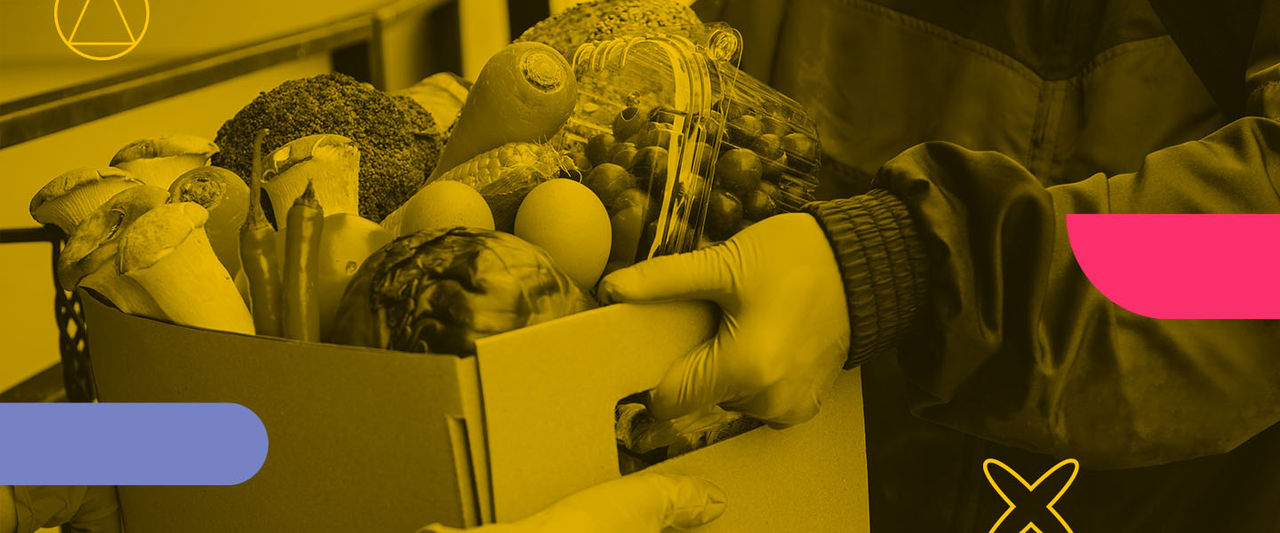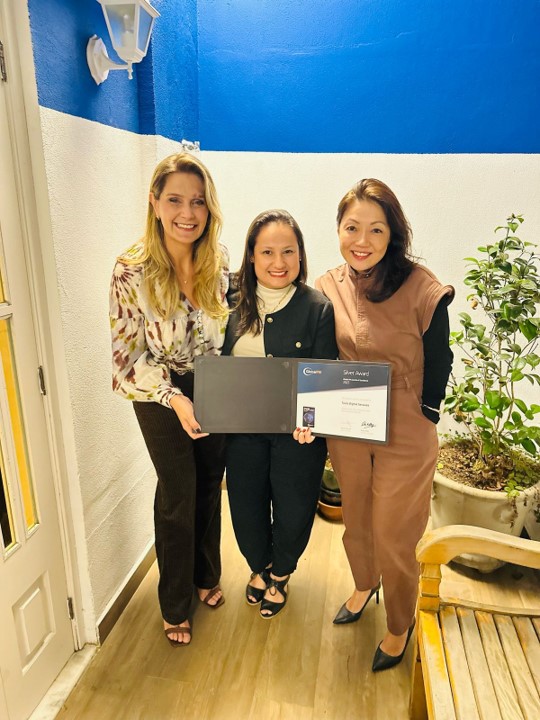3 minutos de leitura
Por: TOOLS Digital Services
19/05/2025

Feeding Lives: From Combating Waste to Global Impact
In a world where millions of people face hunger on a daily basis, initiatives that combat waste and promote the conscious redistribution of food become essential. It was for this purpose that Feeding Lives, was born, a project of Premises and Facilities area of TOOLS Digital Services, of T&O Brasil, which is transforming the way we deal with the relationship between production, consumption and social responsibility within a corporate environment. And yes, the recognition is already concrete: in 2024, the project was awarded by ABRAFAC and, now, in 2025, it competes for the Global FM award, expanding its visibility and potential for impact.
For Keila Yuka Hanashiro, Head of Hospitality at TOOLS Digital Services and responsible for the project, Feeding Lives went off the ground to show how, with creativity, awareness and a desire to do good to others, we can create a culture that positively impacts not only society, but each one of us.
The key turning point in the concept of corporate power
Feeding Lives project did not arise only from the intention of donating surplus food. Although the donation is a noble premise, the project went further: it was the answer to the structural challenge of transforming the employees' experience in relation to food in the Santander Group's buildings. Until then, the operation was conducted by a large concessionaire in the sector, whose focus was exclusively on ensuring food safety within sanitary standards. But for the Hospitality area, quality went beyond that.
The idea was to create a more attractive food environment, with recognized brands, quality cuisine and an experience that stimulated internal consumption. For this, a bold move was needed: replacing the traditional supplier with varied operations that came from retail, such as restaurant chains and catering services. “When we brought these suppliers, they had to relearn how to cook within a company,” she explains. “At first, it was a challenge. They needed to understand our internal processes and we had to empower them.”
It was only after this learning curve that Feeding Lives came to fruition. The food waste generated until then already drew attention. “With adjustments in production and better control, we were able to reduce waste by 60%,” says Keila. But there was still a question: what to do with these foods that, although not marketed, were in perfect condition for consumption?
From operational optimization to social transformation
The truth is that food donation was nothing new for Keila and her team. For years, they tried to implement this practice with the old concessionaire, but they always received negative responses. It was only with new suppliers and changes in health legislation that this scenario changed. Feeding Lives started small, but with the support of new restaurant brands, it became bigger.
Today, suppliers not only actively participate but have invested in the infrastructure to enable donations. One of them, Manai, purchased exclusive freezers to properly store the donated food, ensuring that logistics were efficient and safe.
It is interesting to analyze how the impact goes beyond the benefited institutions. “This process has awakened in suppliers a new awareness about waste. They have taken a more critical look at their own operations, reducing excesses and improving production control. This generates a ripple effect, influencing the entire ecosystem”, says Keila.
Thus, at the same time as doing good, the financial health of donor companies is improved. In addition, the change in the mindset of internal teams was remarkable. Feeding Lives helped create a culture of responsibility with food among employees. During a major Santander Group event, for example, awareness was visible. “One of Santander's leaders asked for extra attention for a more conscious production: ‘There can be no waste here, no way!’ This shows how the project has impacted the way people see consumption”, says Keila.
Impacting beyond borders
ABRAFAC's recognition in 2024 opened new doors for Feeding Lives. Now, with the nomination for the Global FM award (the world version of ABRAFAC), the project gains even more visibility. Large companies, such as B3, have already shown interest in knowing the initiative to implement it in their operations.
The possibility of bringing this experience to an international scenario is also being analyzed. The challenge here is to understand how international regulations deal with food redistribution. “Brazilian legislation allows us to make these donations, but we do not know how it works in other countries. It is something that we need to evaluate before expanding”, she ponders.
Regardless of the result in the Global Award, the impact of Feeding Lives is already undeniable. It shows that, within companies, there is always room for social innovation and cultural transformation. After all, more than a donation project, it is a new way of seeing the role of corporations in building a more sustainable and inclusive future. And there is no doubt: the question is not whether other companies will adopt this practice, but when.
